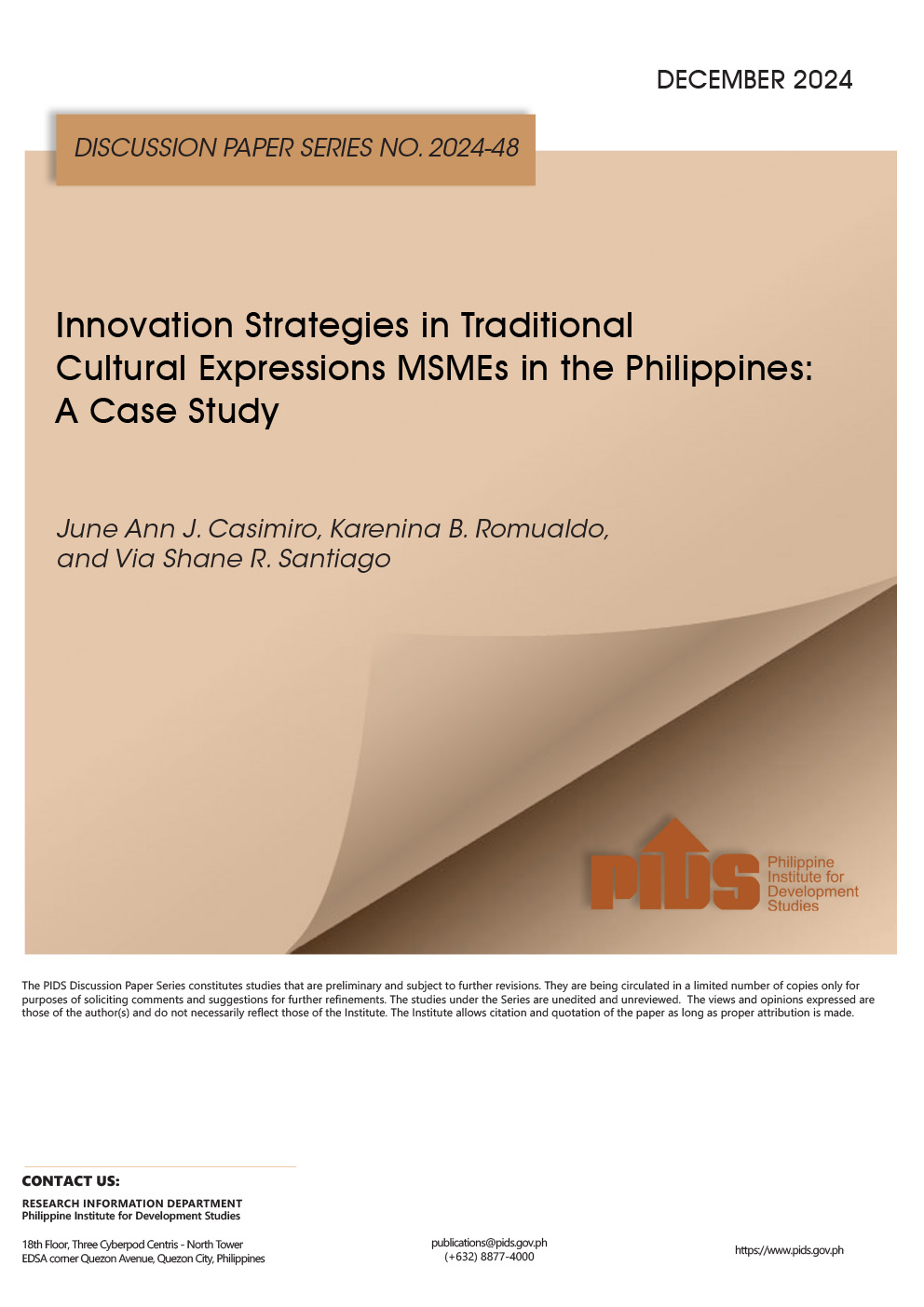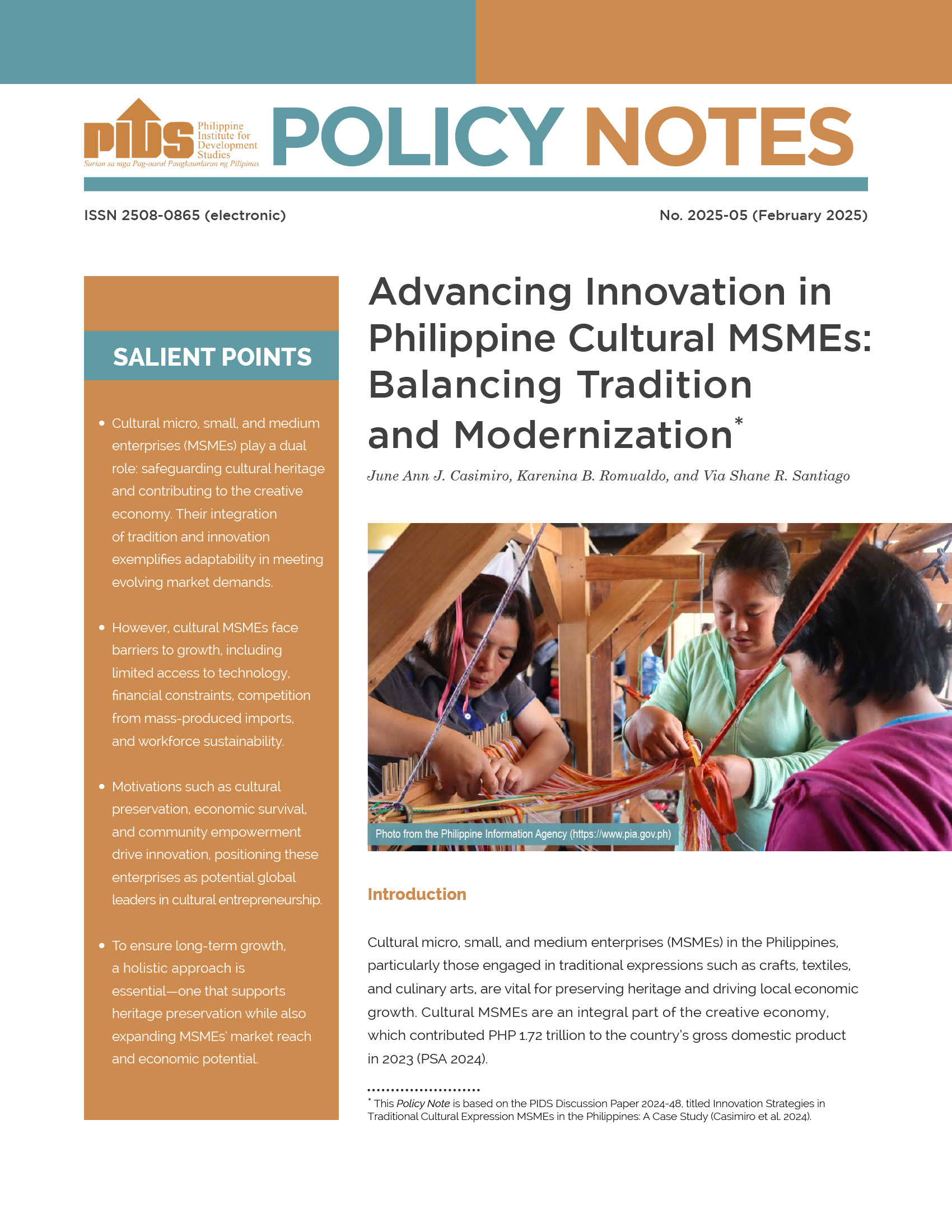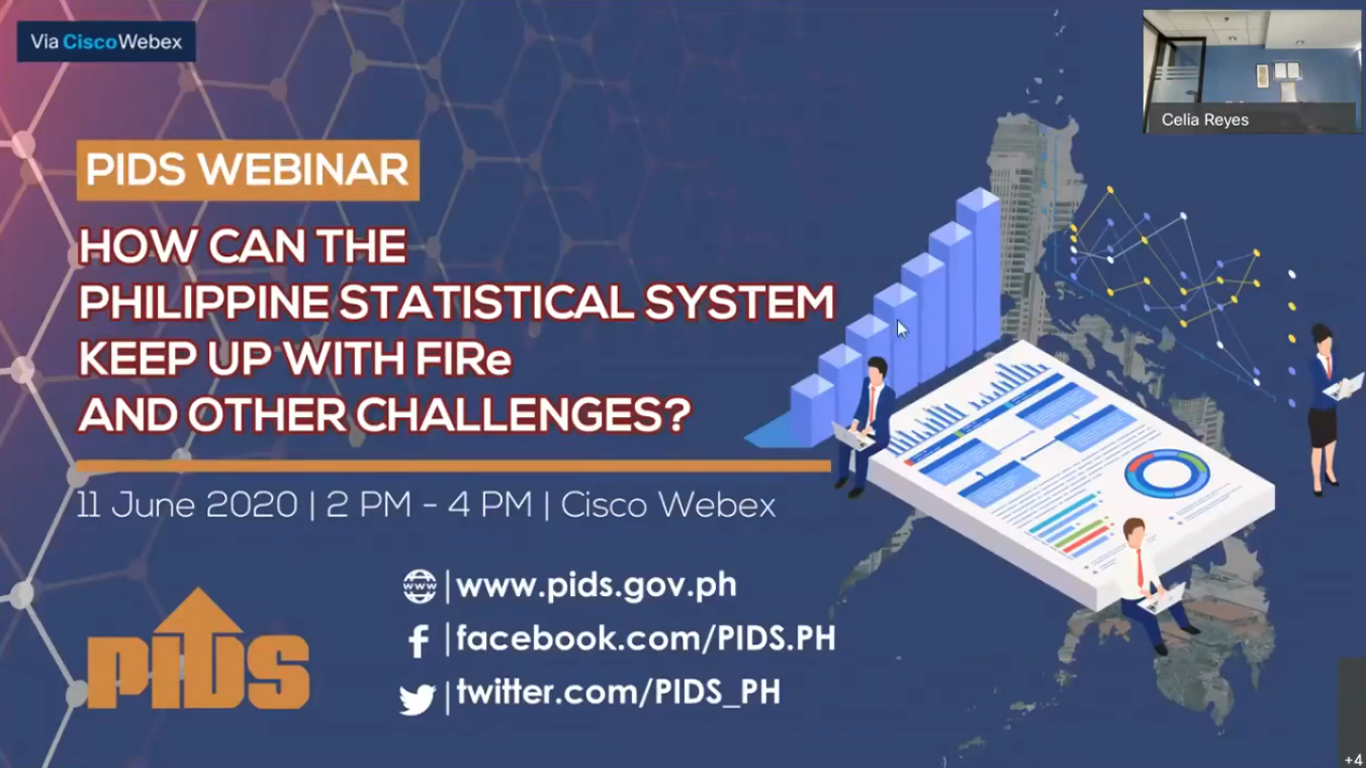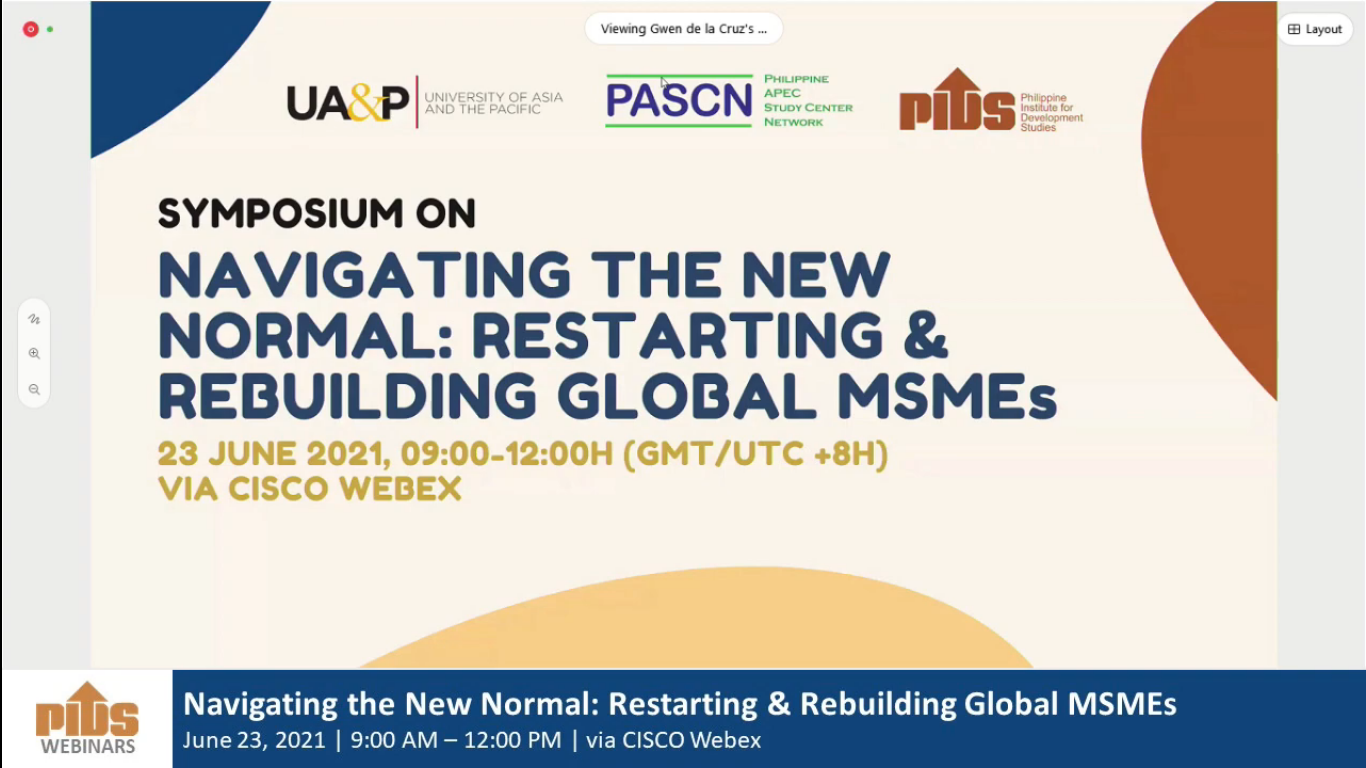
Financial support from government influences the decision of MSMEs to undertake organizational and marketing innovation. This is according to a study published by state think tank Philippine Institute for Development Studies (PIDS) based on data from the 2015 Survey of Innovation Activities of Establishments.
The authors of the study, PIDS Senior Research Fellow Francis Mark Quimba and PIDS Supervising Research Specialist Maureen Ane Rosellon, said that with government incentives, the likelihood of MSMEs undertaking organizational innovation increases by 18 percent and marketing innovation by 15 percent.
Though statistically insignificant, they noted a positive effect on product innovation but a negative effect on process innovation.
In terms of total innovation expenditure, however, the study found that the impact is negative. It noted that more than 40 percent of MSMEs spend innovation expenses for in-house research and development (R&D) and design of products and services, both of which only cover less than 20 percent of the total innovation expenditure. Moreover, MSMEs were found to spend more than half of their innovation expenditures on personnel training.
“These numbers from the survey could be an indication that MSMEs are developing or strengthening [their] internal capabilities for innovation activities,” the authors explained.
Similarly, a negative effect on the share of machinery, equipment, and software expenditure was observed.
“It is possible that while machinery acquisition is a common upgrading expense, the financial support is allowing enterprises to augment funds towards organizational innovation, in-house R&D, and other expenditures such [as] design, marketing, and training which more than 40 percent of MSMEs spend for,” the study said.
Meanwhile, the study also found other factors that affect the innovation of MSMEs and stressed the need to improve on these areas to further capacitate them. These include geographical differences in innovation activities, weak linkage between MSMEs and universities or other higher education institutions, and lack of funding.
Quimba and Rosellon said the government should look at strengthening the technological capacity of MSMEs “as it is an important characteristic in the decisionmaking for and implementation of innovation activities”. This could be done by deepening industry-academe linkages, as universities and research institutions can be valuable resources of information and technology.
Additionally, it is important to identify which type or form of incentive should be offered to MSMEs.
“Based on previous studies, there are direct and indirect incentives offered by governments to MSMEs, and these studies suggest that the former stimulate more R&D than the latter,” the study said.
The government can also explore the use of implementation funds under the Philippine Innovation Act to expand its direct support to MSMEs innovation activities, such as through the grant of subsidies and loans with low or free interests, the study added.###
This press release is based on the PIDS discussion paper titled, “Impact of government incentive on MSME innovation”.
The authors of the study, PIDS Senior Research Fellow Francis Mark Quimba and PIDS Supervising Research Specialist Maureen Ane Rosellon, said that with government incentives, the likelihood of MSMEs undertaking organizational innovation increases by 18 percent and marketing innovation by 15 percent.
Though statistically insignificant, they noted a positive effect on product innovation but a negative effect on process innovation.
In terms of total innovation expenditure, however, the study found that the impact is negative. It noted that more than 40 percent of MSMEs spend innovation expenses for in-house research and development (R&D) and design of products and services, both of which only cover less than 20 percent of the total innovation expenditure. Moreover, MSMEs were found to spend more than half of their innovation expenditures on personnel training.
“These numbers from the survey could be an indication that MSMEs are developing or strengthening [their] internal capabilities for innovation activities,” the authors explained.
Similarly, a negative effect on the share of machinery, equipment, and software expenditure was observed.
“It is possible that while machinery acquisition is a common upgrading expense, the financial support is allowing enterprises to augment funds towards organizational innovation, in-house R&D, and other expenditures such [as] design, marketing, and training which more than 40 percent of MSMEs spend for,” the study said.
Meanwhile, the study also found other factors that affect the innovation of MSMEs and stressed the need to improve on these areas to further capacitate them. These include geographical differences in innovation activities, weak linkage between MSMEs and universities or other higher education institutions, and lack of funding.
Quimba and Rosellon said the government should look at strengthening the technological capacity of MSMEs “as it is an important characteristic in the decisionmaking for and implementation of innovation activities”. This could be done by deepening industry-academe linkages, as universities and research institutions can be valuable resources of information and technology.
Additionally, it is important to identify which type or form of incentive should be offered to MSMEs.
“Based on previous studies, there are direct and indirect incentives offered by governments to MSMEs, and these studies suggest that the former stimulate more R&D than the latter,” the study said.
The government can also explore the use of implementation funds under the Philippine Innovation Act to expand its direct support to MSMEs innovation activities, such as through the grant of subsidies and loans with low or free interests, the study added.###
This press release is based on the PIDS discussion paper titled, “Impact of government incentive on MSME innovation”.












